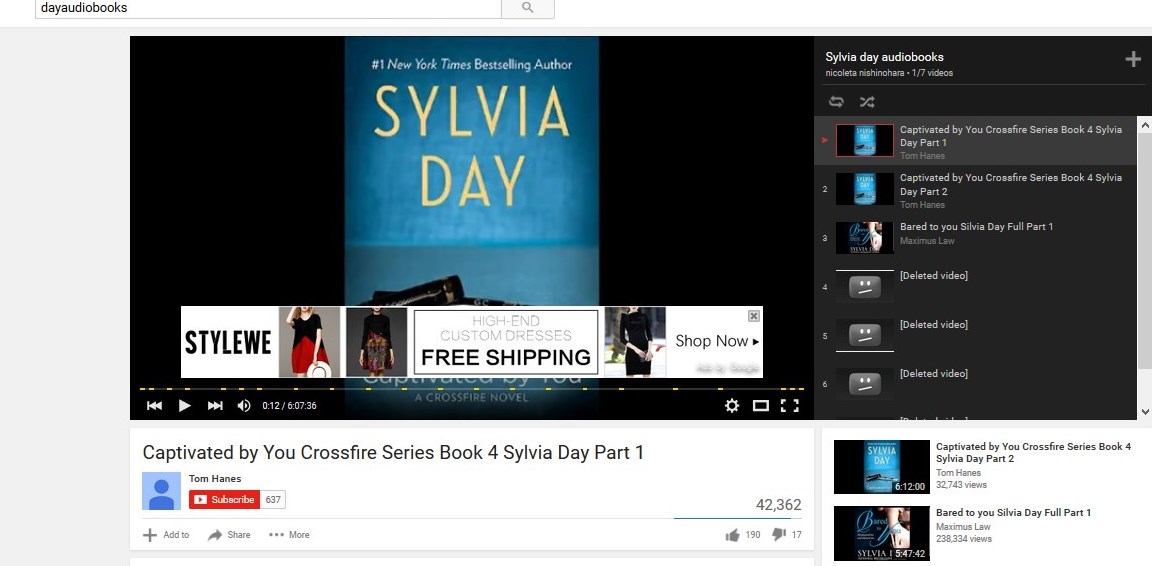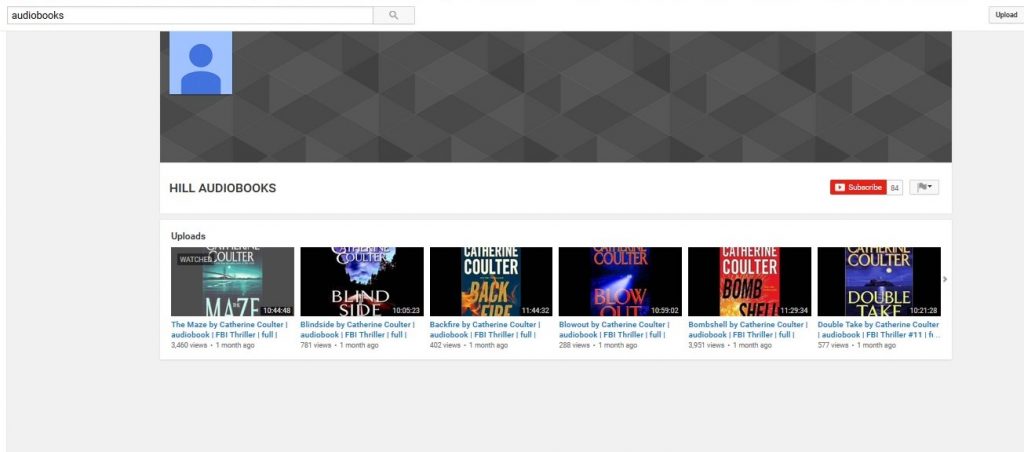Pirating books is a practice that has been around for years. Someone copies a book and uploads it to a sharing site for others to download for free or for a cost. It is a constant battle that authors and publishers face as a part of doing business.
Recently, I was searching YouTube for a book trailer, but what I found was an audiobook. Someone had recorded the audiobook and put it up on YouTube to share. So, I started looking into how many audiobooks were on YouTube and was surprised at how many I found there. And though I can’t say it surprised me that people were pirating audiobooks, what did intrigue me was that the audiobook videos on YouTube had ads on them.
Why is this so intriguing? Because of my extensive experience with YouTube videos, I knew that Google, who owns YouTube, has a policy in place for copyrighted material. When material is discovered to be copyrighted, Google contacts the copyright owner and asks gives them a choice.
- To remove the material entirely.
- To allow ads against the material with revenue share. Meaning YouTube and the copyright owner make money off the ads.
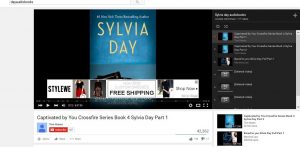
If the copyright owner allows advertisements to appear on or next to the material they get a percentage of the revenue brought in by those ads.
I contacted Google/YouTube to ask them about the audiobooks I found and the ads on them. I was contacted by Stephanie Shih of Google who send me what she called “Background information” on how things work regarding copyright infringement and how it is handled.
She confirmed their policy to give copyright holders the option to have the material deleted or monetized. According to her information as of October 2014 YouTube has paid out of $1 Billion to rightsholders who have chosen to monetize claims since Content ID first launched in 2007.
A billion dollars in revenue in 8 years has gone out to over 8,000+ YouTube partners using YouTube’s Content ID system including major network broadcasters, movie studios and record labels.
Looking at the sheer number of pirated audiobooks on YouTube alone raises many questions.
- How much money are authors and publishers losing each year to this problem?
- Who exactly is making money off of these uploaded, pirated audiobooks?
- Is this content part of what YouTube’s Content ID should be catching?
- When we see ads running against these audiobooks, who is receiving the money?
- Who is looking out for the interest of the author who created these books?
Not all audiobooks on YouTube are pirated. Some audiobook publishers offer these recordings on YouTube as a way to promote. But, some of the dummy accounts that do have pirated audiobooks are cleverly naming their YouTube profiles in such a way that, at a glance, one might think they are legitimate companies.
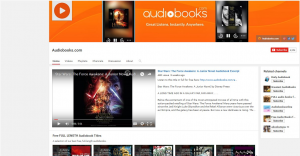
If a book is in the public domain it can be shared. I spoke with a company that does promote audiobooks on YouTube legally and successfully.
Meaghan Sansom from Audiobooks.com shared this when asked about their YouTube channel-
“Audiobooks.com has legal permission to post this content, we use our YouTube channel as a promotional tool. We’re an audiobook retailer that has relationships and contractual agreements with all of our publishers. In our contract with publishers, we have permission to publically share samples (usually no longer than 10 minutes). The purpose of us doing this is to drive sales for that title; it is a promotional tool. For every title we sell on our service, we pay a license / royalty fee to the publisher as per our contractual agreement.“
Looking at their YouTube channel you can see that they do indeed follow this policy and are careful to share only the legally allowed minimum and are doing so quiet successfully. She also shared that, “There are some publishers who do not allow us to post samples to YouTube, so books from their catalogue are left off our channel.” So, not all publishers all even a sample of an audiobook, which is their right.
The fact that Audiobooks.com is seeing success in sharing audiobook samples makes one wonder if publishers are missing opportunities to sell audiobooks on YouTube much like movie studios now do?
There are other YouTube profiles claiming to be audiobooks distributors who are sharing FULL length audiobooks, but who I could not confirm had the rights to these titles. Authors such as Susan Mallory, Catherine Coulter, Christine Feehan, and even Nora Roberts may know their audio books are being shared for free on YouTube, or that someone is being given revenue against the ads for their audio books, but this may be news to them. One agent, who asked to remain anonymous was shocked to find his client’s audio book available on YouTube.
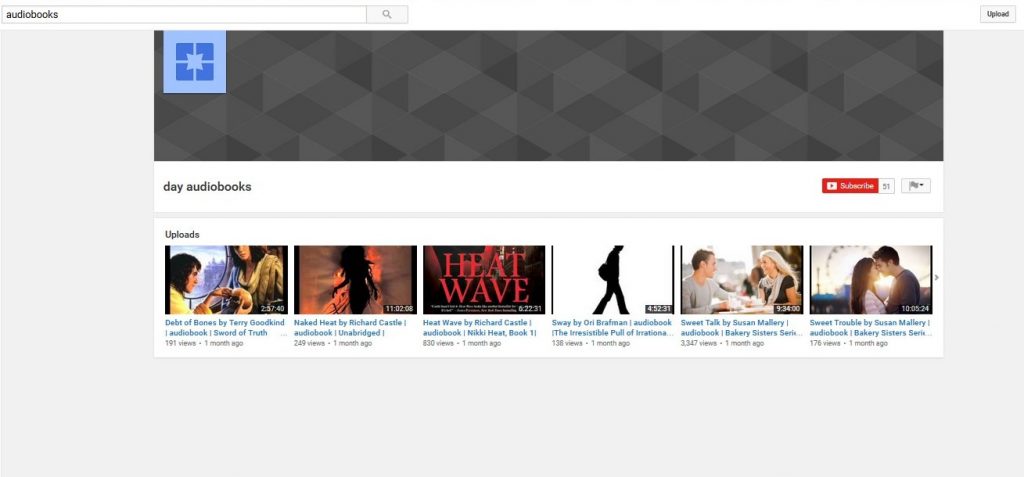
Another problem I encountered is that YouTube only allows the copyright holder to report stolen material. So if the publisher has not taken advantage of YouTube’s Content ID program the material can remain on YouTube and the pirated material continues to be downloaded or listened to for free, costing both publisher and author in royalties.
Authors should be insisting that those who publish their works as audiobooks participate in YouTube’s Content ID program or the pirating and lost revenue will continue.
Should publishers be making audio books more accessible on sites such as YouTube, but by using the movie studio’s idea of charging a fee for access. Are publishers missing an access point to audiobooks for readers? Could social media be similar to impulse buy areas of grocery store? If it’s made available there, where so many people already go for entertainment, might more people buy an audiobook if they come across it?
Currently audiobook pirating is rampant on YouTube with money being made either by selling the pirated material or through revenue share and ads playing against the content.
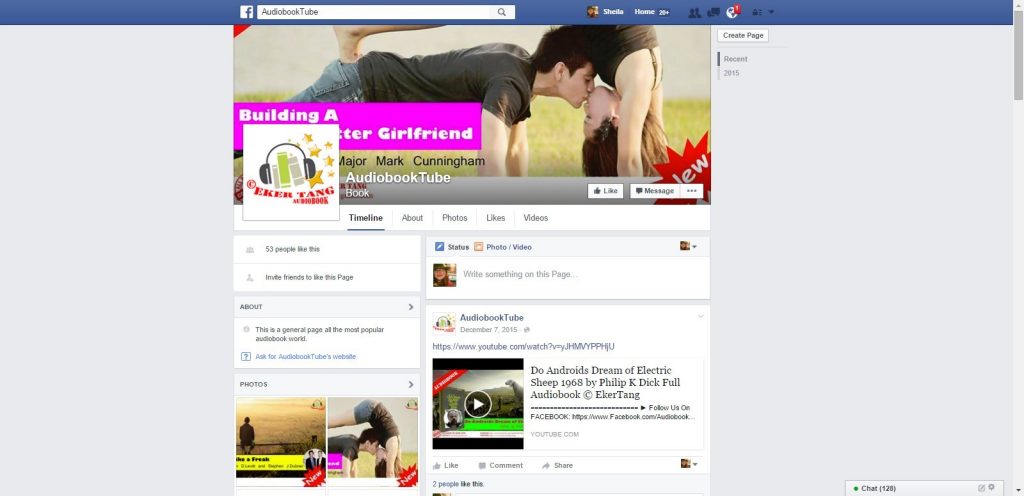
I have reached out to audio book publishers and traditional publishers, but after two weeks no one is talking. I am hoping that, by publishing this first article, more publishers will become aware of the problem and perhaps will be inclined to answer my questions and help me expose more illegal action on YouTube. And perhaps the publishers themselves should be asking where the revenue from these ads are going IF not to them? Is YouTube sharing money with pirates? Are they ignoring obviously stolen content in order to rake in money on ad share? Since I could not get the YouTube representative to answer questions about ad share against pirated material, I can only speculate on where the ad share money is going. Perhaps if enough authors, publishers, readers and concerned citizens question them, they will feel more inclined to answer those questions.
Until then, any feedback or additional information shared on this topic is appreciated.



